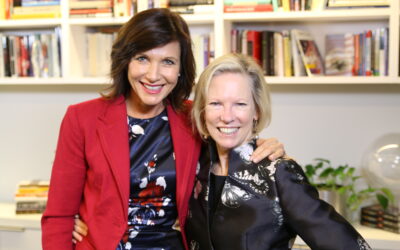 “I don’t like what I do,” Jake shared with me. “The problem is, I get paid fairly well, have good job security and can’t see any way out. So I turn up, do my job and get out of here as soon as I can. It’s not ideal but at least I’ve got a job.”
“I don’t like what I do,” Jake shared with me. “The problem is, I get paid fairly well, have good job security and can’t see any way out. So I turn up, do my job and get out of here as soon as I can. It’s not ideal but at least I’ve got a job.”
Jake’s predicament is all too common. I remember years ago knowing a dentist who had counted down the days until he could retire. It wouldn’t have been so bad except that they were in the thousands.
The truth is, there is always a ‘way out’ of situations that leave us miserable if we’re willing to find it and do the work to make it happen. In the shorter term, there are always things we can do differently to get more enjoyment from our work, however mundane we find it. So if you don’t like your work, just know that whether it’s changing your job, changing career or just changing your attitude and the way you do your job, there is always something you can do. Always.
Sadly around the world today there are millions of people who go to work every day disliking their job and wishing they were elsewhere (according to Gallup organisation, only 13% of people are actively engaged in their jobs.) While the cost to the bottom line in organisation is in the billions, the cost to the human spirit is immeasurable.
Of course, even people who love their work, don’t always love going to work. None of us enjoy every element of our job, and there are times when even the most rewarding career path or calling can leave us feeling flat, burnt out, frustrated, bored or wondering “What next?” While it’s unrealistic to expect to always love what you do, it is realistic to genuinely enjoy your work (most days). In fact, given you spend a third of your adult life at work, it would be a shame not to enjoy it. To help you on your way, here are the top four reasons people dislike their job and what you can do about them.
What you do everyday matters. How you do it matters even more.
1. I don’t see how what I do really matters. “More and more today people have the means to live, but not the meaning to live for,” wrote Albert Einstein. His words speak to one of the biggest causes of disengagement… we don’t see the meaning in our work. Some jobs have a clear and direct line between the work involved and the difference they make for other people. Others, less so. But the truth is that every job – from the most menial and mundane – is meaningful. While what you are doing might not feel like it’s changing the world, the spirit in which you do it can make a difference for the people around you. So whether you work on an assembly line or wash dishes in a corporate cafeteria (both jobs I did in my early twenties) or you audit multi-nationals or take care of the dying, think about the spirit you bring to you work every day and the impact it would make if you did your job poorly, with a sour face and “it pays the bills” attitude. See, it’s not just what you do that makes a difference, but how you do it. Mindset is everything. So regardless of whether what you do everything is something you’re passionate about, or whether you’d love to to feel more passionate, taking time to “Know Your Why” can make a fundamental difference.
2. I don’t feel valued for what I do. Mother Teresa once wrote that there is more hunger in this world for appreciation than there is for bread. Certainly over the years the most unhappy workers I’ve met are those who feel their hard work, time and talents are simply taken for granted. It’s why one of the key things I work on with leaders is ensuring that those in their team feel fully valued by them. It takes so little time to acknowledge people for what they do, and the attitude they bring to work every day, yet it can make such a profound difference. If you don’t feel valued in your workplace, you mighty want to share how you feel with your supervisor. If you feel that won’t make a difference (or you’ve tried it and it didn’t), then you might be best served by looking to find a place to work where you will be.
3. I’m not able to focus on what I do best. After graduating with a business degree from college/uni, I started my career in a graduate program for a large multi-national oil company. It seems pretty exciting at first… until I was put into a role that involved analysing spreadsheets all day to optimise trucking distribution routes. While I’ve always been pretty good with numbers, doing that job sucked me dry. By the end of the day I couldn’t get out of the office fast enough and I would wake up most mornings dreading the day ahead. The simple reason was that it didn’t leverage my strengths or allow me to do what I did best and enjoyed most… connecting with people, building relationships, collaborating, influencing, finding synergies, and optimising the collective outcome through optimising the collective input.
While I’ve always been pretty good with numbers, doing that job sucked me dry. By the end of the day I couldn’t get out of the office fast enough and I would wake up most mornings dreading the day ahead. The simple reason was that it didn’t leverage my strengths or allow me to do what I did best and enjoyed most… connecting with people, building relationships, collaborating, influencing, finding synergies, and optimising the collective outcome through optimising the collective input.
If you find yourself in a job that doesn’t let you do what you do best, try to be creative in finding ways to do more of those activities even if just in small bursts or times over the day or week. If it doesn’t hold a promise of future opportunities to progress into more rewarding work, you may be best placed to look for a new role (in your organisation or outside it) or to pursue a new direction entirely (which is what I ultimately did, returning to university to study psychology). When you love what you do, work no longer feels like work. So choosing to pursue work that feeds your soul and harnesses innate strengths is always going to lead to greater fufulfillment your work and life.
Whatever you do, don’t spend one third of your adult life doing something that leaves you miserable. Life is far too short and your talents too precious to waste either. If you need to make a change or take a chance, just do it. As I wrote in Stop Playing Safe, “Far better than to risk the possibility of making a mistake than to choose the certainty of spending years of your life hating what you do.”
4. I don’t take (or can’t find) time to recharge and renew (or I’m burnt out). It’s well documented that you can’t perform at your peak if you never get the chance to disengage from your work, and to recharge – physically, mentally, emotionally and spiritually. Recent research by the Energy Project found that people who don’t take ‘time out’ during the work day, or get to turn off from work after hours, aren’t able to sustain the same levels of performance as those who do. Likewise managers who encourage employees to go home at a reasonable hour and take regular breaks have higher performing teams than those who don’t. Just as a car that gets regular tune-ups will go further on less gas, have fewer breakdowns and handle bad roads better, so too will you cope better with the pressures of your job, the difficult people and tough problems when you are giving yourself the time you need to ‘tune up’ and recharge. So however busy you are, be intentional about:
- giving yourself ‘time out’ both throughout your day (5 minutes every 90 minutes)
- unplugging when you get home so you don’t bring your work home with you (or at least, put aside a few hours of ‘non-work’ time to be with your family if you need to plug in again later on.
- cultivate regular routines that nurture your body, mind and spirit (e.g. regular exercise,enough sleep, time to connect with your bigger “Why’, clarify core priorities, and engage in activities that feed your spirit.)
Like I say, life is short, and to spend years of it not enjoying what you do is such a waste and makes you complicit in your own misery. So whether you need to change your job, change your career or just change your attitude, please don’t be passive about it. You have value to bring, and a contribution to make. The question is:
What do you need to change in what you do or in how you do it to make your experience of work one that enriches your life, rather than depletes it?
I’m pleased to say that Jake has decided to look beyond his current role for a new one that offers more challenges and stimulation. While it may invite new challenges and greater uncertainty into his days, it will almost certainly create more possibilities also. At least he won’t be passively sitting on the sidelines waiting for things to get better all by themselves. They never do.






